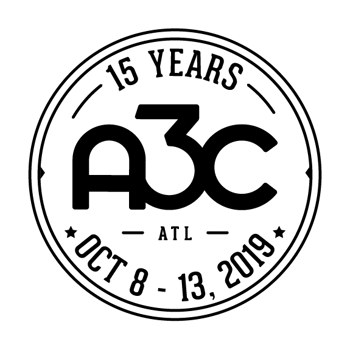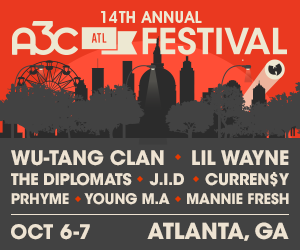What is most likely to strike you upon meeting J.U.S.T.I.C.E. League/Asylum recording artist Laws – other than the fact that he doesn’t look like the average rapper – is a clear confidence and sense of self. Those aren’t necessarily common qualities among his peers. But Laws spent much of the early part of his 24 years soul searching and defining his identity; a process from which, he says, his music has benefited greatly. Adopted from his native Brazil as an infant, Laws spent his formative years in Long Island, NY, raised by parents who educated the youngster about his heritage while passing on their own Puerto Rican culture. Still he recalls struggling to find a balance between exploring his rich history and respecting the culture in which he was raised. “For a kid who’s adopted there’s a lot of identity searching going on,” he says. “My life parallels my music in that way. Especially because as a young rapper, you’re looking for a suit to wear; a personality almost.” Long before he even considered a Hip-Hop career, Laws was a fan of music, raised by parents who kept the sounds of Soul and Salsa music flowing, peppered by Rock, Blues and other genres. At the age of 14, when his family relocated to Springhill, Florida, Laws started experimenting with his own artistry, using music as a cure for both boredom and shyness. Despite the change of address, Laws continued to draw inspiration from the East Coast lyricists he had been raised on, while allowing his love of Rock and Soul to shine through. The growing popularity of the internet as a promotional and music sharing tool allowed him to remain immersed in the style that had helped mold him.
Within a year, his music grew from a budding craft, which he says never left his bedroom, to a skill he tested against any willing opponent. The passion he had already recognized within only magnified once he stepped into the local rap scene. By the end of his freshman year of high school, he and his friends were taking the hour drive into Tampa whenever possible to try their skills in battle. Like many other local artists, his first proving ground was underground radio station 88.5 GM. On Saturday nights, the station’s parking lot was transformed into Tampa’s largest cipher. “That was my first true test,” Laws remembers. “It was like going from riding a tricycle to going across a tightrope on a unicycle. Now you’re in front of people and you can’t f**k up. That’s what made me really hungry for it.” Soon he and his friends were sneaking into area nightclubs, competing in rap battles and talent shows. Despite having some concerns about the culture, his family was very supportive of Laws’ budding career; even when the early grind [read: ‘non-paying’ phase] was hard for them to stomach. “Without their support, I couldn’t have made it,” states Laws. “I had so many chips against me: my location, the way I talk, the style of rhyme I had down there… If I didn’t have my family telling me to go for it, I probably wouldn’t be here.” As one of the few Latino artists in his community – and one of the few influenced by the East Coast – Laws always felt he had a little more to prove than most. But he prevented any of these differences from hindering him by taking himself on as his toughest competitor.
His first radio hit came quite accidentally during his senior year in high school. After finishing in second place in a rhyme battle, Laws was invited to local radio station 96.1 FM (WTMP) along with the competition’s winner. When the latter failed to show, Laws seized the opportunity to have his first single, the humorous “Get Off My Kool-Aid,” played on the station instead. Due to an overwhelmingly positive response, the station continued to support the song for months to come. The success of the song opened up performance opportunities throughout the Tampa/St. Pete area. The increased exposure allowed Laws to morph into the next phase of his career: learning how to craft songs, not freestyles; developing a stage presence that hinged on more than cleaver punchlines. It also gave his producer L.A. a chance to expand on his sound as well. Laws spent the next 2-3 years performing locally and reinvesting what little profit he made into mixtape releases. The purpose of these releases was simply to continue to serve as a gauge of his evolving talent and as an invitation for fans, old and new, to witness his artistic soul searching. In 2004, when he felt he finally had the right collection of music, he released his first project on local indie Domination Records. Unfortunately, shortly after the release, Laws lost consciousness prior to a scheduled performance, ending up with a minor skull injury that forced him to sit out the rest of the album’s promo run. Once again, music would be his salvation, as he turned to his book of rhymes to better cope with a lengthy recovery process. Keeping his pen sharp paid off fairly quickly: soon after regaining his health and autonomy, Laws was selected as part of Rawkus Records’ Rawkus 50, an early exercise in social media marketing. The selection was based on a recommendation by local heavyweight Slop, who recognized the amount of work Laws had put in. By that point, he had opened for several national artists in the Tampa area, including Wu Tang, KRS-One and MF Doom, developing quite the local buzz along the way. Through the Rawkus 50 campaign, Laws was one of 50 artists to record a digital EP for the label. And while the project was not as heavily promoted as Laws expected it to be, one song from the album, “Where My Horns At” caught the attention of producer Rook of the Grammy Award winning production team J.U.S.T.I.C.E. League. He took a strong interest in helping Laws come into his own.
For the next year, the two went back and forth, recording and improving song after song. Once Laws had gained his new mentor’s confidence as a musician, he and his production team – L.A. and Feb Nine – headed to Atlanta to meet and work with the other members of the popular production team. Once Laws returned home to Tampa, Rook approached his partners with the idea of producing an entire Laws project. “It was such a weird time for me,” says Laws. “Because here I am a grown man, trying to lead a regular life still, but at the same time, I’m trying to impress these dudes. It almost never got done because these cats are so picky.” A year later, Your Future Favorite Rapper was released, with Southern tastemaker DJ Smallz placing his stamp of approval on the rookie’s first mixtape. “They were looking for something totally different from me,” he says of the J.U.S.T.I.C.E. League. “They were looking for the super me. They helped me become the next me, the better me. They were acting as the record label ear, listening for what was industry acceptable, and I had none of that at the time. It was a real tough learning time.” It didn’t take long to see that Laws had effectively captured the industry’s attention. In the first few weeks, the mixtape was downloaded 10,000 times. The most respected Hip-Hop bloggers had accepted Laws as their future favorite topic of conversation. Within a few months, he was officially signed to the J.U.S.T.I.C.E. League and had joined Asylum Records Records’ roster of artists.
Now, less than a year after the release of Your Future Favorite Rapper, Laws has ushered in 2010 already hard at work on making the mixtape’s ambitious title true. While embarking on the recording process for his major label debut, Laws is also readying the release of two more promotional titles. The first, released February 16, 2010, is simply titled 4:57, as homage to the last time he punched a clock in his “regular life.” The project is a fitting welcome into the industry, with DJ Don Cannon hosting and production contributions by DJ Khalil, Grammy Award winner 9th Wonder and, of course, the J.U.S.T.I.C.E. League, to name a few. He is also working on an ambitious virtual duet with none other than Sir Paul McCartney. Laws had his producers recreate 12 of McCartney’s songs and bring the former Beattle’s vocals back into the tracks to craft Yesterday’s Future. The project is due out in April, with Laws’ debut album expected to hit stores during the summer. “When I listen to my favorite music, I can’t explain why I like it. It’s just a mood that I get,” explains Laws. “All I try to do is make music that I can appreciate as a fan. That’s what Your Future Favorite Rapper was: me making what I wasn’t hearing from other artists. Hip-Hop is a simple formula: you need a really dope beat; you need clean, coherent lyrics; you need to be witty and interesting, sometimes introspective; and just leave a memory on your track. I’m not a pretentious Hip-Hopper, I’m not a gangster, I’m not a ladies’ man, I’m not whining about my life. I’m just making organically good music. Just contributing another great thing to the culture.”
For more on Laws, visit www.yourfuturefavoriterapper.com. For all inquiries, please contact Orlando McGhee at Orlando.McGhee@gmail.com or 404-452-6944 begin_of_the_skype_highlighting 404-452-6944 end_of_the_skype_highlighting begin_of_the_skype_highlighting 404-452-6944 end_of_the_skype_highlighting begin_of_the_skype_highlighting 404-452-6944 end_of_the_skype_highlighting begin_of_the_skype_highlighting 404-452-6944 end_of_the_skype_highlighting





